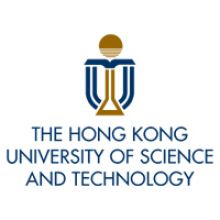A new coalition focused on postgraduate education will join up universities in the Greater Bay Area (GBA), a planned Chinese megalopolis that would combine nine mainland cities, plus the two special administrative regions of Hong Kong and Macao.
The Guangdong-Hong Kong-Macao University Alliance for Postgraduate Education was established by four co-founding institutions: Sun Yat-sen University, Guangzhou University, the Hong Kong University of Science and Technology (HKUST) and the Macau University of Science and Technology.
Luo Jun, president of Sun Yat-sen University, told Chinese state media that the group was formed “in a bid to better integrate educational resources in China’s Greater Bay Area and support the development of the region”.
This latest alliance is part of a much larger effort to integrate the GBA through transport links, business and higher education. The Chinese University of Hong Kong already has a partner campus in the border city of Shenzhen, while HKUST received approval in September to build a new campus in Guangzhou. The Guangdong-Hong Kong-Macao University Alliance, established in 2016, includes 21 universities from the mainland, nine from Hong Kong and seven from Macao.
There are still major differences between Hong Kong, Macao, and their neighbours to the north. Controlled borders divide the three areas, which use three different passports and currencies. Hong Kong and Macao have higher levels of academic freedom and uncensored use of the internet. Hong Kong also has the most highly ranked universities in the GBA.
However, Guangdong Province has a vast population, affordable cost of living and its sheer size cannot be matched by Hong Kong or Macao. It is an economic powerhouse with the highest provincial GDP in China, plus top infrastructure for manufacturing and product development. Shenzhen has been called the Silicon Valley of China.
Joshua Mok, vice-president of Lingnan University, told Times Higher Education that “we should maximise the strengths of Hong Kong universities to work with universities based in GBA areas for promoting research, high-quality learning and innovation-centric entrepreneurship…Hong Kong can play a leading role in helping mainland universities become more internationalised.”
Professor Mok felt that Hong Kong universities had not made full use of their research, in terms of commercialisation and creating marketable products. “I think there is significant space for Hong Kong universities to work and collaborate with mainland universities for knowledge transfer and innovation-related entrepreneurship,” he said.
Another gap between the two sides of the border is in income – a major consideration for Hong Kong students looking to move to other parts of the GBA after their studies. Professor Mok admitted that mainland Chinese salaries might not be “sensational”, and that there would be “very different work and social environments” compared with Hong Kong.
But he added that given Hong Kong graduates’ “strong international outlooks, together with problem-solving and communication skills, they would be able to perform and gradually get promoted to senior positions if they are willing to serve with companies [or] organisations based in the GBA with good working attitudes”.
Register to continue
Why register?
- Registration is free and only takes a moment
- Once registered, you can read 3 articles a month
- Sign up for our newsletter
Subscribe
Or subscribe for unlimited access to:
- Unlimited access to news, views, insights & reviews
- Digital editions
- Digital access to THE’s university and college rankings analysis
Already registered or a current subscriber? Login







